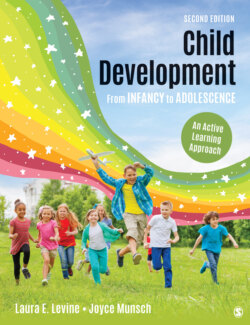Читать книгу Child Development From Infancy to Adolescence - Laura E. Levine - Страница 81
На сайте Литреса книга снята с продажи.
Avoiding Perceptual Bias
ОглавлениеSometimes students think that child development is just common sense and that they already know everything they need to know. Unfortunately it isn’t that simple. We can’t rely on folk wisdom, or ideas that are widely accepted but have not been scientifically tested, to tell us what we need to know about development. Having such preconceived ideas can also affect how you process new information. As you read this book, it will be easier for you to remember the facts you encounter that fit well with what you already believe to be true, and to forget or ignore those that don’t. This tendency to see and understand something based on the way you expected it to be is called a perceptual bias and it can affect your learning. That is one reason we use what might be common misconceptions to begin each chapter. Testing your knowledge about the topics in the chapter before you begin reading will make you more aware of information in the chapter that will challenge your initial ideas. You will want to spend a little more time and effort making sure you understand this information.
Perceptual bias: The tendency to see and understand something based on the way you expected it to be.
To get a preview of the types of misconceptions you may have about child development, try to answer the questions in Active Learning: Testing Your Knowledge of Child Development. Each of these questions appears later in the book. Pay special attention to the information that challenges the ideas that you are bringing with you to this class.
Active Learning: Testing Your Knowledge of Child Development
Answers: (1) F; (2) F; (3) F; (4) T; (5) T; (6) T; (7) F; (8) F; (9) T; (10) T
How did you do? Many of these questions represent common beliefs that have been contradicted by research findings, so it wouldn’t be surprising if you got a number of them wrong. If you are curious about those answers, you can check in the chapter they are in to see why each answer is either true or false. The purpose of these quizzes is not to make you feel bad about what you do or don’t know, but rather to point out that many ideas that we have about child development that sound like “common sense” don’t agree with what research has shown us to be the case. We hope your quiz results will help you remember to pay extra attention to those ideas that contradict your preconceived ideas.
